VFL Wolfsburg defeated Eintracht Frankfurt 2-0 in Saturday’s Bundesliga fixture. Goals from Wout Weghorst and João Victor ensured that Oliver Glasner’s side left Frankfurt with three points despite playing the entire second half with only 10 men after Marcel Tisserand was sent off for the visitors. Eintracht Frankfurt struggled to cope with Wolfsburg’s intensity from the start of the game and despite having a numerical advantage in the second half, could not overturn the deficit. This tactical analysis looks at the approaches of both sides and the reasons behind the result.
Lineups
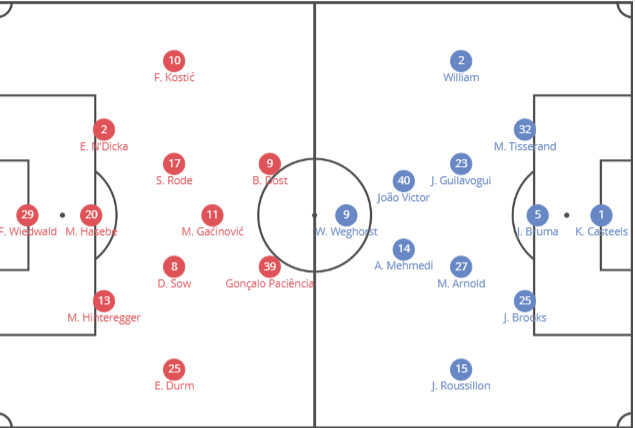
Eintracht Frankfurt lined up in a 3-4-1-2 formation with Bas Dost and Gonçalo Paciência leading the attack. Mijat Gaćinović played as the central attacking midfielder in front of Sebastian Rode and Djibril Sow. Erik Durm and Filip Kostić were selected as the wing-backs. In defence, the trio of centre-backs comprised of Martin Hinteregger, Makoto Hasebe and Evan N’Dicka.
Wolfsburg also lined up with three central defenders comprising of Tisserand, Jeffrey Bruma and John Brooks. Josuha Guilavogui played with Max Arnold in midfield as William and Jérôme Roussillon were the wing-backs. Wout Weghorst led the attack with João Victor and Admir Mehmedi playing as wide-forwards.
VFL Wolfsburg’s style of play
Wolfsburg were undoubtedly the better side, despite the red card and dealt with Frankfurt quite comfortably. Prior to this match, their last competitive win came on October 6th and the urge to win was reflected in the intensity they brought to the game. Wolfsburg were not afraid to press Frankfurt high up the pitch despite being the away side. This kept Frankfurt from maximizing the numerical advantage they had in the centre of the pitch as well as ensured that Wolfsburg could overload the wide areas where they enjoy attacking from. In this regard, both Mehmedi and João Victor were well-suited to the game as they tucked inside and maintained the pressure on Frankfurt’s wide centre-backs, forcing the ball to be passed around repeatedly between the defence rather than forward.
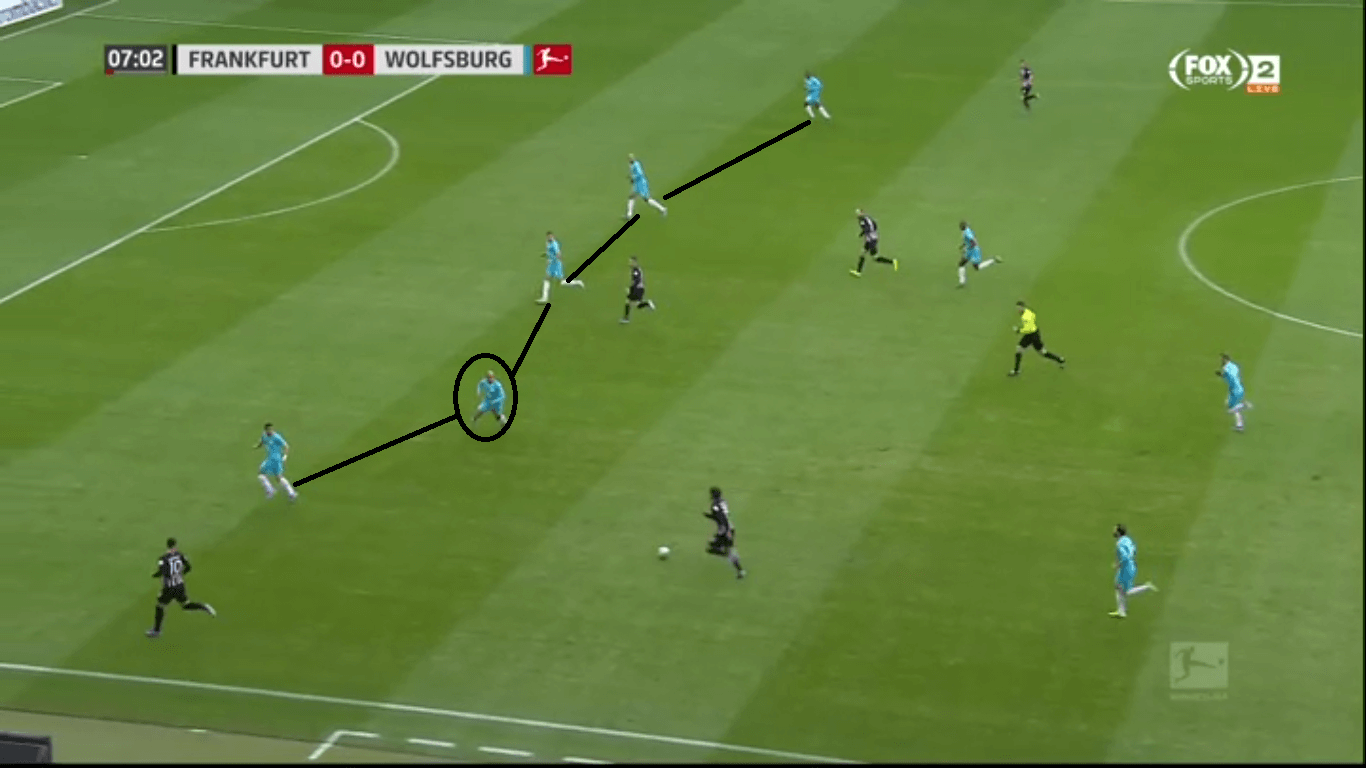
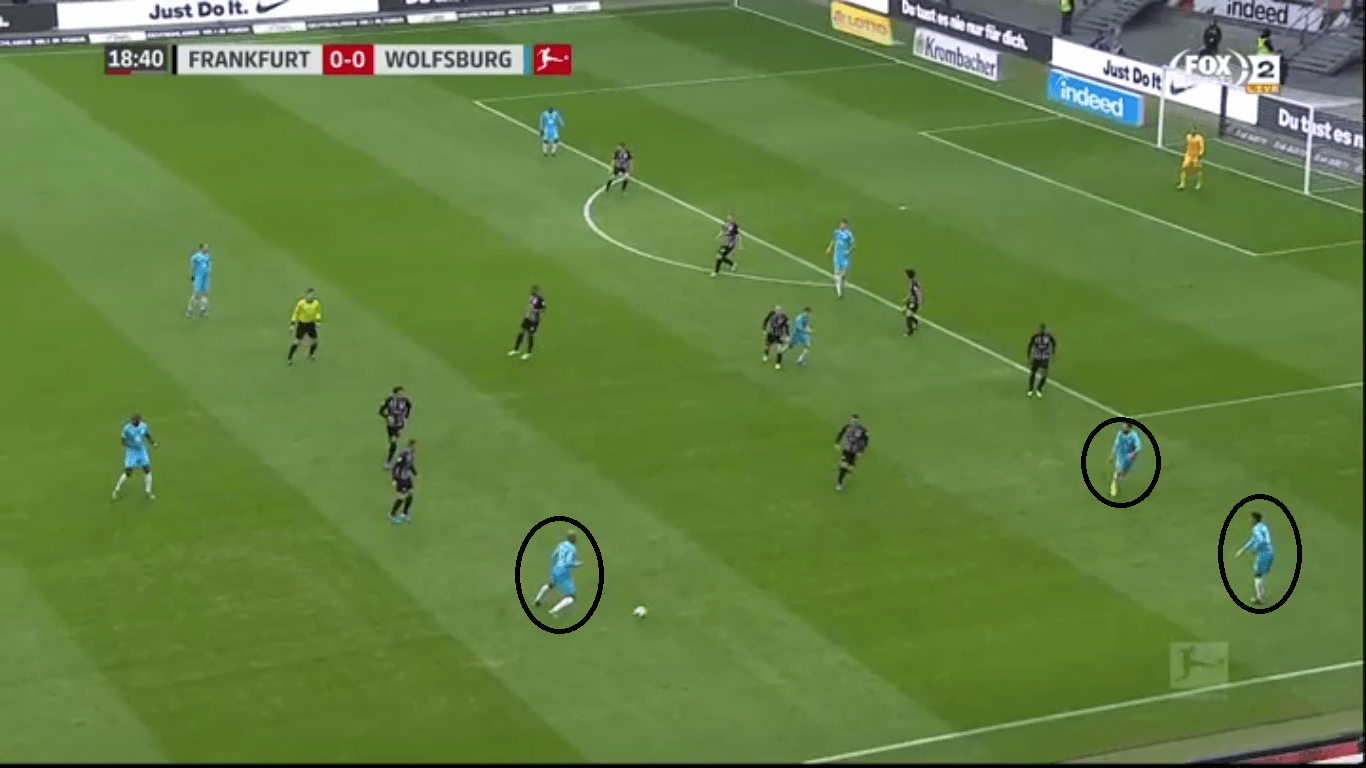
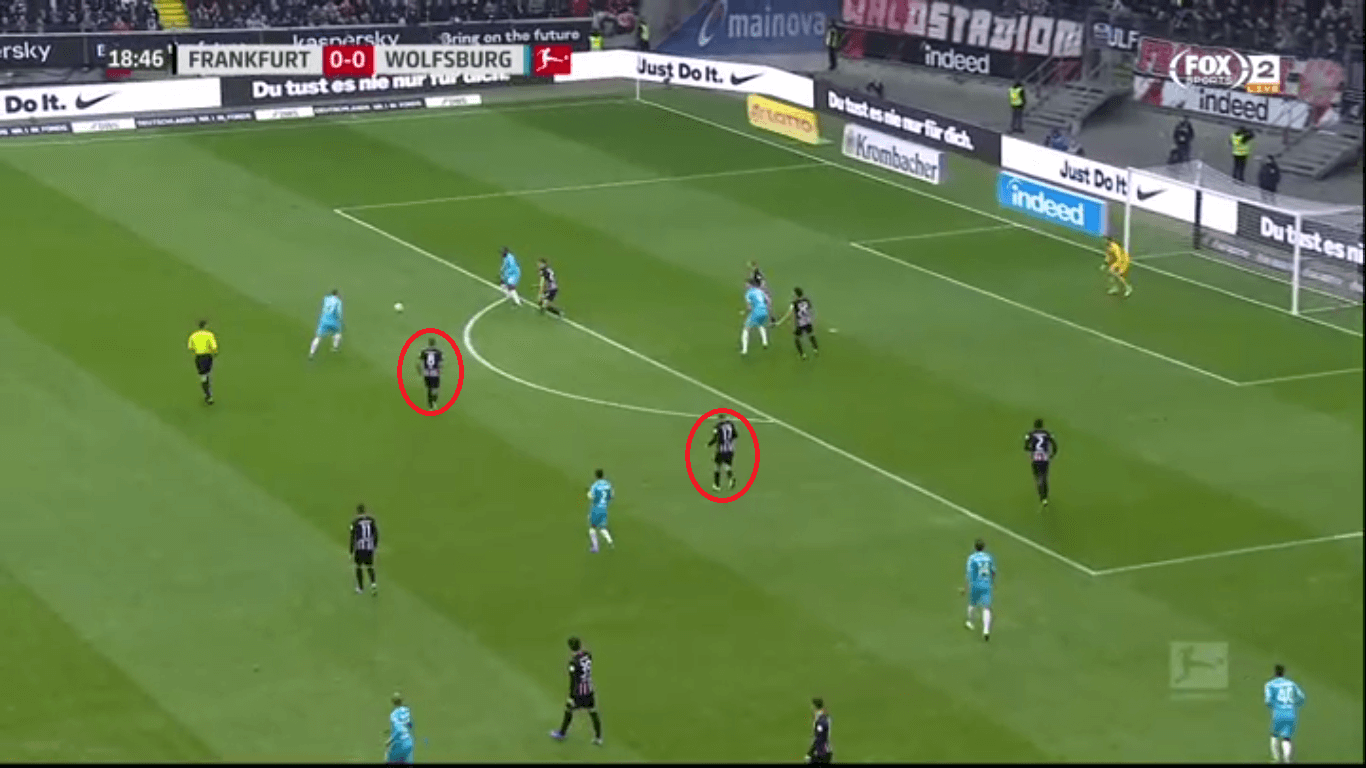
In the first half, the majority of Wolfsburg’s attacks came from using Weghorst as a focal point. The Dutchman used his physicality to shield the ball and create some neat combinations with his fellow forwards or holding up the ball long enough for the midfielders to stride forward. As Frankfurt focused most of their energy on keeping their opponents limited in the wings, they failed to mark Wolfsburg’s central midfielders. This resulted in Wolfsburg’s first goal as the home side had four players out wide to deal with just three of the opposition’s. Noticing Arnold in space, a cross was played for the German who had time to take a shot and this was intelligently deflected by Weghorst to score the opener. Glasner’s side intelligently opened up the space for themselves by misleading the opposition into focusing extensively only on certain areas of the pitch.
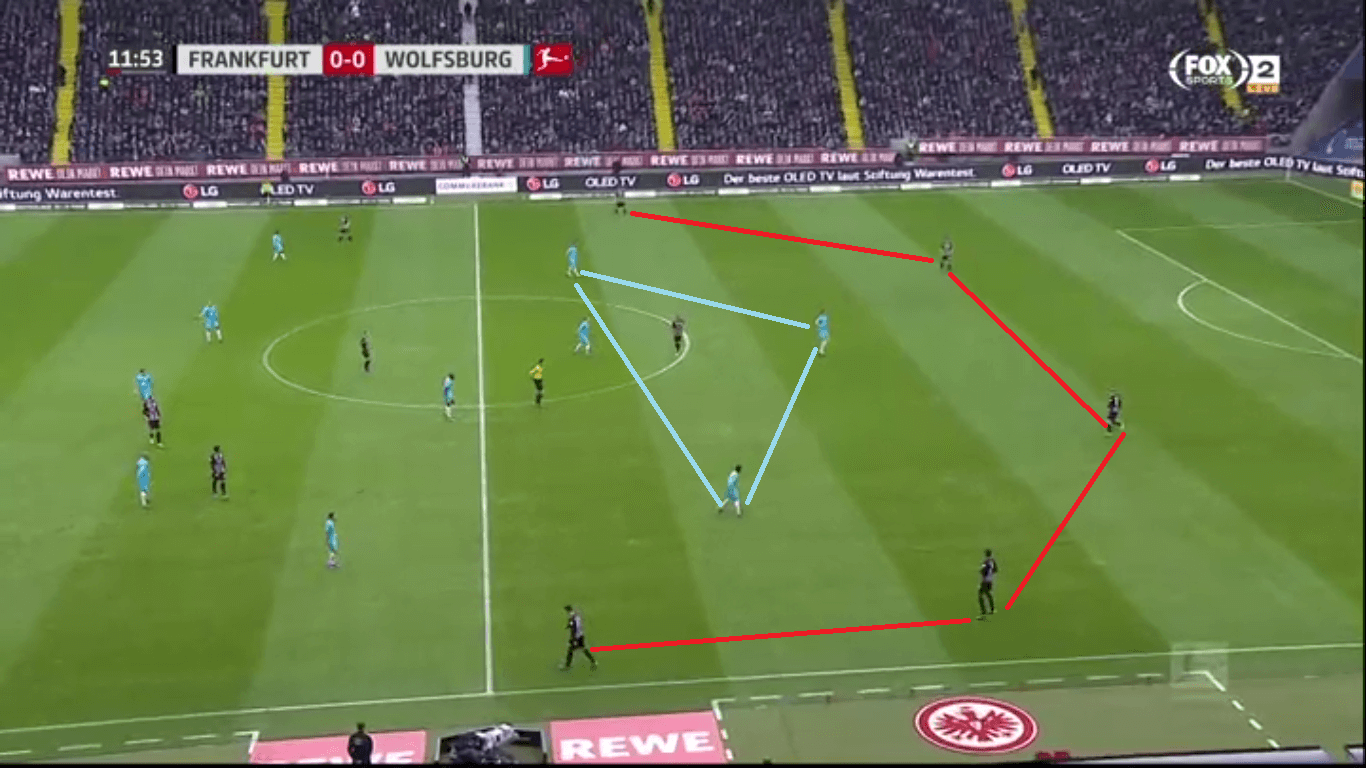
After going a man down, the visitors switched to a 4-2-3 formation but kept up their intensity. The forwards maintained their relentless pressure on the opposition which helped to stagnate Frankfurt’s transitions. They did not commit themselves too much either, instead, being disciplined in helping out their teammates defensively and preventing Frankfurt from creating 3v1 situations on the flanks.
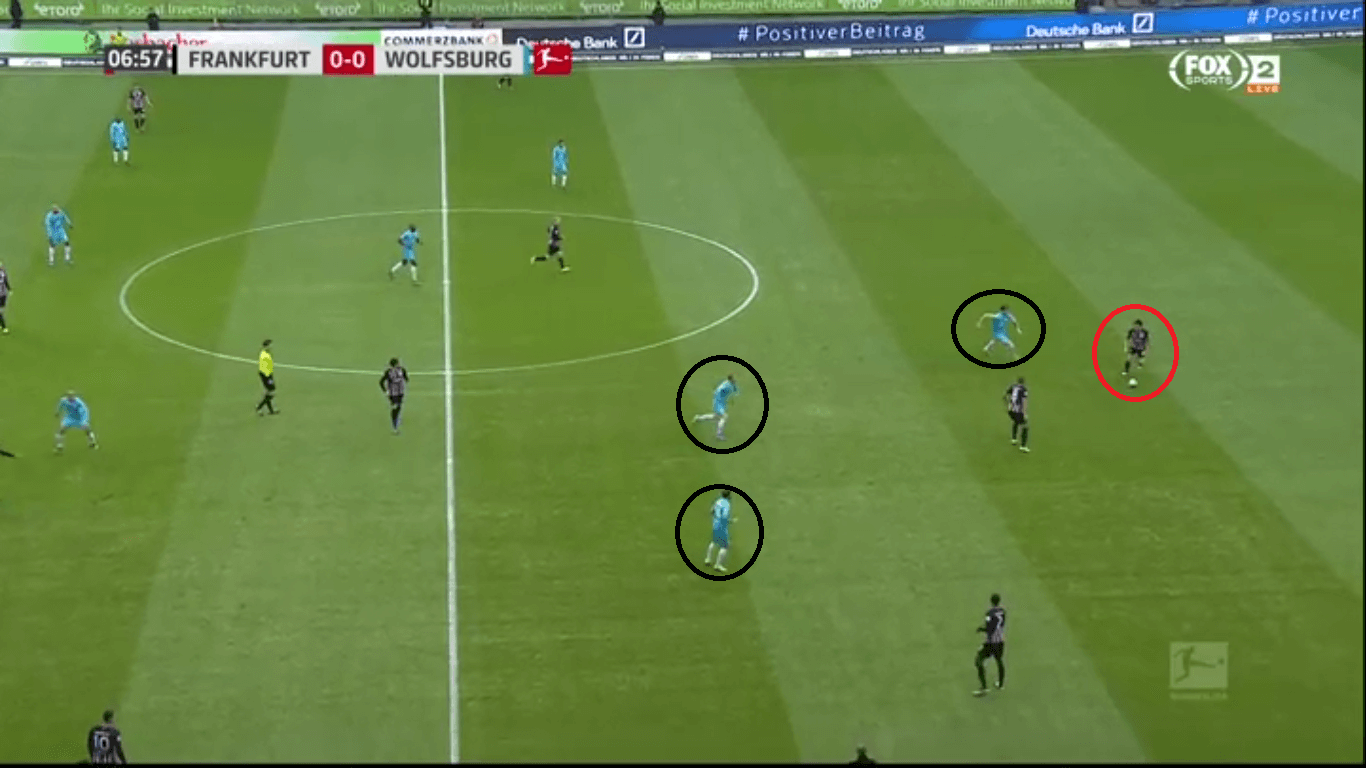
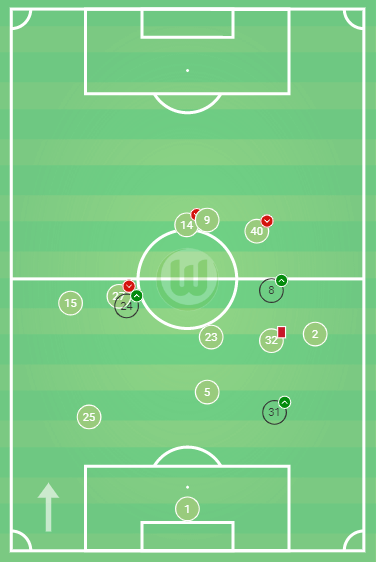
Eintracht Frankfurt’s style of play – struggles
Frankfurt were victims of their own unimaginative attacking routines as despite having 70% of the possession, they managed just nine shots on target. There was not enough movement between Frankfurt’s midfield and attack to bypass Wolfsburg’s press and progress the ball more rapidly. Frankfurt’s primary tactic was to cross the ball as much as they could for Dost and Paciência. As the game was more expansive in the first half, Eintracht Frankfurt did enjoy a fair share of good chances but were let down by inaccurate crossing. The biggest weakness in their transition was how they failed to move the ball between the centre-backs and central midfielders. As mentioned above, neither Sow or Rode were particularly aware of their positions and failed to position themselves in half-spaces or between the lines to receive a pass. They frequently found themselves too close to Gaćinović which resulted in them being overrun in midfield despite having the numerical superiority. This amplified the risk of the defenders being caught in possession as they were forced to venture forward with the ball looking for a passing option.
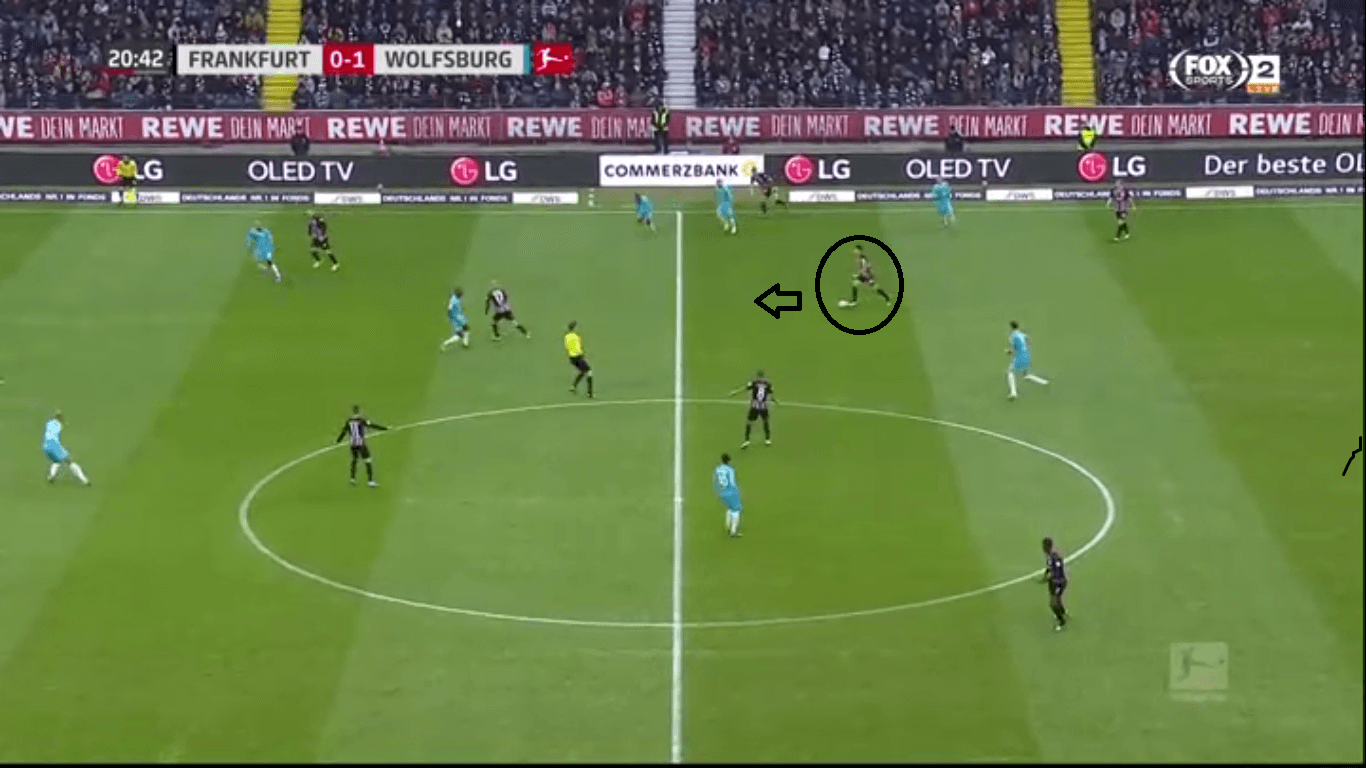
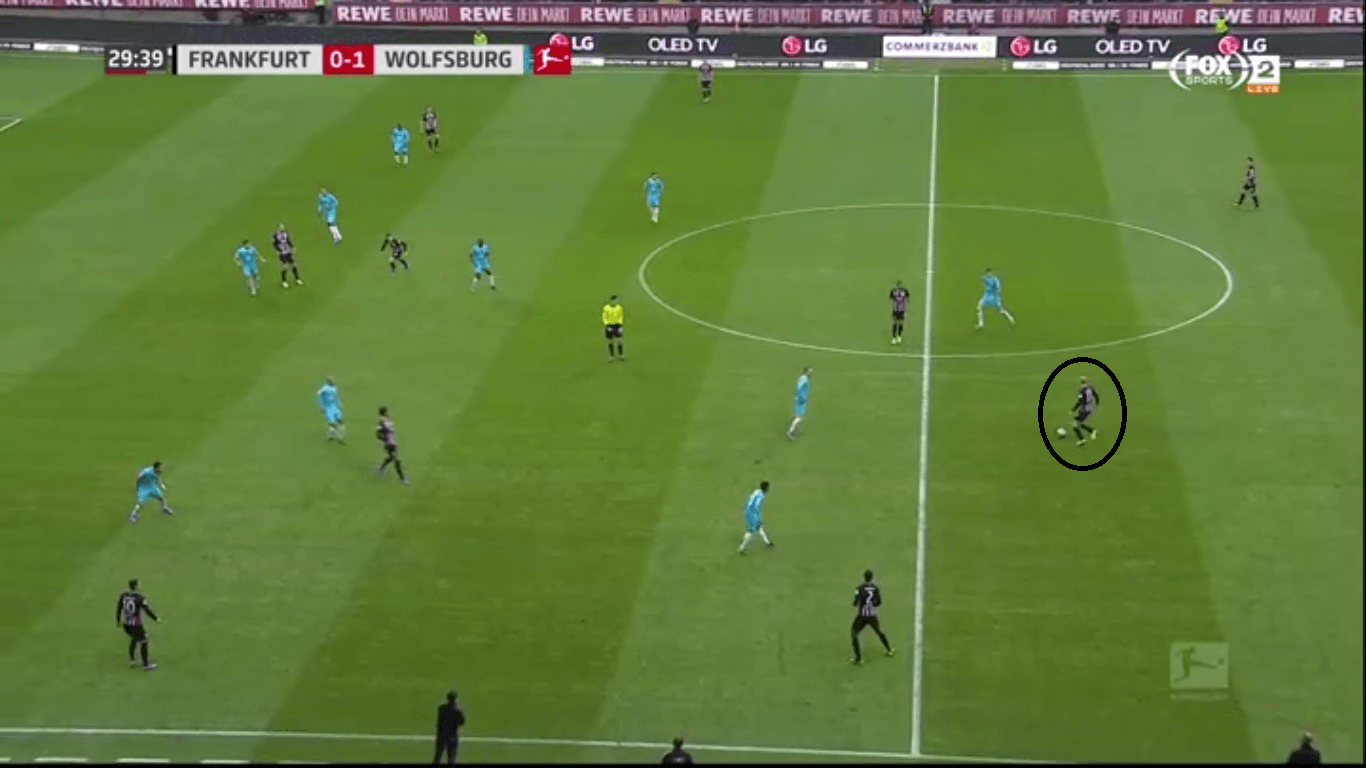
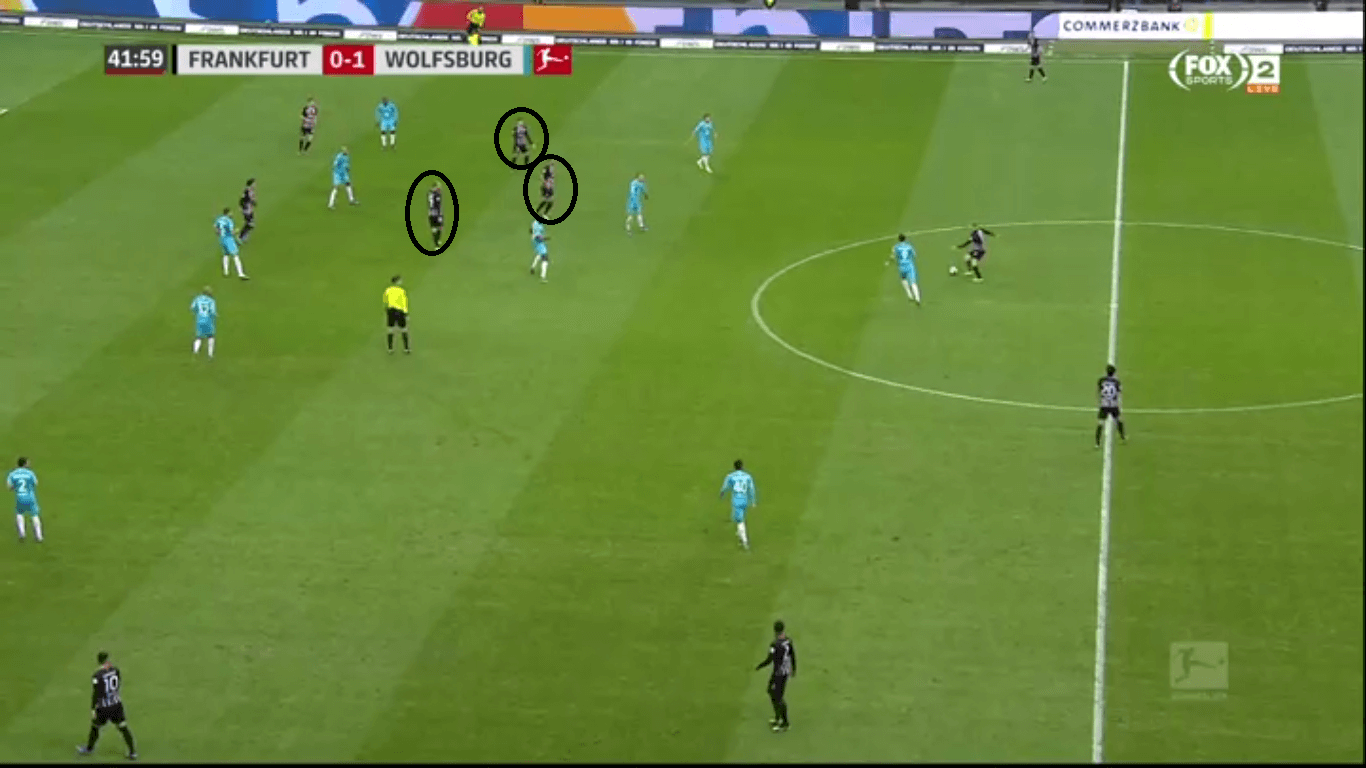
One area that did show promise was their exploits on the left-hand side. As Wolfsburg played a high defensive line, Kostić, on two or three occasions found himself in yards of space to whip in crosses. Unfortunately, Wolfsburg managed to snuff out such chances or the crosses themselves were far too inaccurate to create a goal. If the crossing was more accurate from the home side, Frankfurt would have definitely troubled Wolfsburg’s goal a lot more.
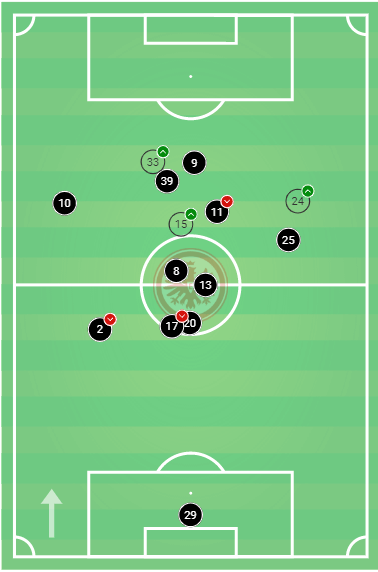
Another aspect which cost the home side was the reluctance of the forwards and attacking midfielder to contribute defensively. This enabled Wolfsburg to comfortably carry the ball out of their own half with minimal pressure. It was a mismatch of approaches for Frankfurt as they ought to have been more aggressive. They seemed caught in two minds as to whether they should wear out Wolfsburg’s intensity or take the game to the visitors.
In the second half, after the red card, Frankfurt were not brave enough in their decision making, attempting very few diagonal passes or line-breaking passes to counteract Wolfsburg defending deep. Instead, they isolated themselves through their insistence on playing only crosses for the forwards rather than use their own midfielders to drag the opposition players out of position.
Conclusion
In conclusion, as this analysis has shown, VFL Wolfsburg were definitely the better side and deservedly won the game. The tactics employed by Eintracht Frankfurt were not sufficient to deal with the visitor’s energy and attention to detail. Even after going a man down, Wolfsburg must be commended for the shape they maintained which enabled them to keep their lacklustre opposition at bay.
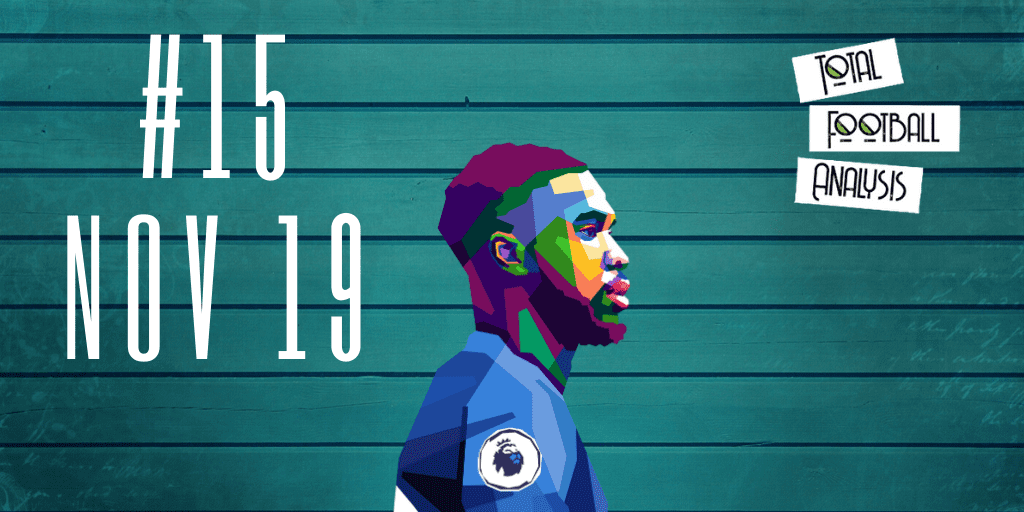
If you love tactical analysis, then you’ll love the digital magazines from totalfootballanalysis.com – a guaranteed 100+ pages of pure tactical analysis covering topics from the Premier League, Serie A, La Liga, Bundesliga and many, many more. Buy your copy of the November issue for just ₤4.99 here





Comments